Indonesian domestic worker reveals shocking details of abuse by Hong Kong housewife
A DOMESTIC worker has spoken out about the beatings, starvation and twisted games she suffered at the hands of an abusive housewife.
IT WAS after Erwiana Sulistyaningsih tried to run away that her employer first hit her.
“She was angry at me when I fell asleep while I was working,” said the Indonesian domestic worker, who had attempted escape when she realised she would never be paid.
Erwiana was allowed just four hours of sleep a day, which she would snatch on the floor of a closet in the Hong Kong apartment during the afternoon, so she could work through the night.
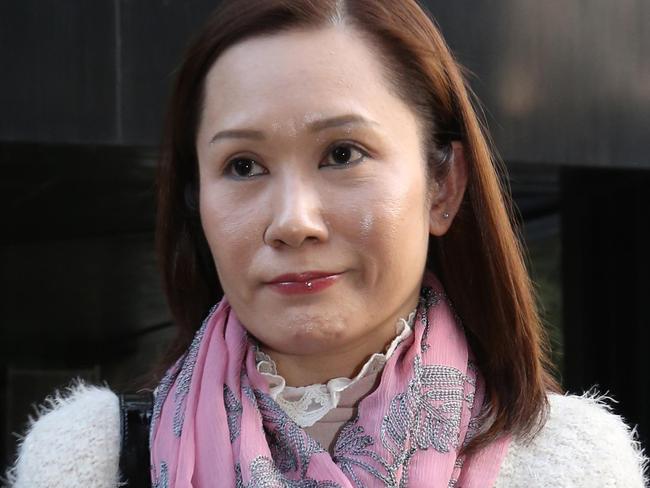
The attacks became more frequent. Housewife Law Wan-tune pulled her down a ladder when she was cleaning an air conditioner, punched her in the mouth and fractured two of her front teeth, and regularly hit her on the head with a clothes hanger.
In winter, Law made her stand naked and wet in the bathroom for hours, with a fan blowing on her. Another time, Law put a vacuum cleaner tube in her mouth and twisted it, cutting her lips.
Erwiana, who was born in a small village in central Java, has spoken out for the first time after her employer was found guilty on 18 counts of abuse on February 10, including inflicting grievous bodily harm. Law, 44, is due to be sentenced tomorrow.
Details from the trial shocked the world, revealing how the 24-year-old’s body started to break down thanks to her torture, near-starvation and stress. Her skin was damaged by bleach and cleaning products, because she was forbidden to wear rubber gloves. “She said if I used gloves I couldn’t clean properly,” said Erwiana, according to a New York Times report.
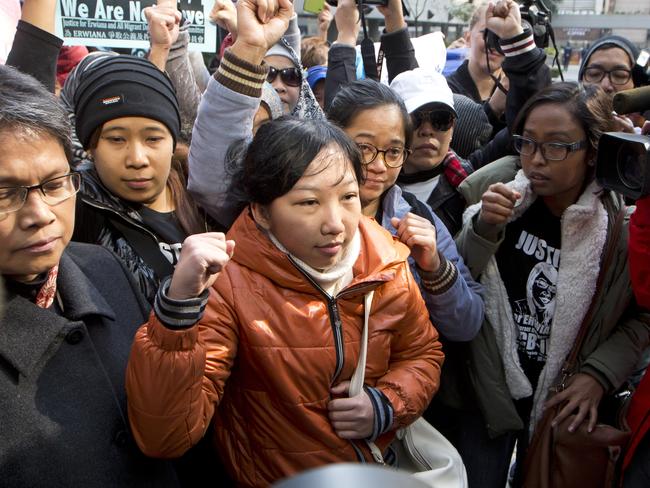
The domestic worker was only allowed to drink one 450ml bottle of boiled water per day, to minimise her need to urinate. She was allowed to urinate just twice a day, and then in a plastic bag.
“If I used the toilet, I was told I was wasting my time, because I would then have to clean it, and I was here for work. She didn’t want anything to be dirty.”
Erwiana worked 20-hour days at the home Law shared with her two teenage children, and was not paid once in eight months. By the end, the emaciated worker was not menstruating and could hardly walk. “I was afraid to report it to the police,” she said.
Erwiana only spoke to her family in Indonesia once, when her agency told Law to allow it. Law stood next to her “helper” when she called. “I didn’t want my father to be worried, and I was afraid of threats, so I told my father that I was fine,” said the 24-year-old.
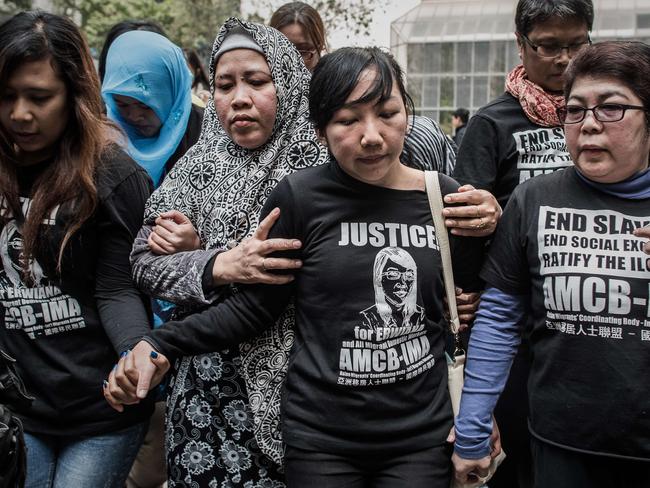
In January last year, Law put her in nappies because she could no longer use a toilet, dressed her in six layers of clothes and put makeup on her to hide her bruises.
“She asked the daughter, ‘Is it OK like this?’ and the daughter said, ‘Yes, that’s OK’,” said Erwiana.
Then they took a taxi to the airport. The driver testified in court that Erwiana stank of urine and faeces. Law warned the Indonesian girl her family would be harmed if she told them anything, gave her $10 and her passport and left her to be wheeled to the gate on a baggage trolley.
Her family were horrified. She had left Indonesia for better pay and prospects, and now she was half-dead. They took her to hospital, where photos of her condition caused uproar in Indonesia and Hong Kong. Law was arrested days later.
“I can forgive her, but she must be punished, because that will teach other employers in Hong Kong and elsewhere not to abuse their employees,” said Erwiana. “Domestic workers are really treated like slaves.”
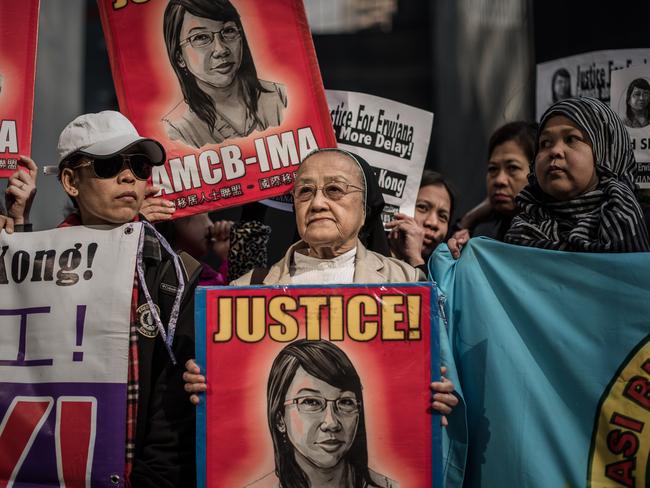
Erwiana has now gained a scholarship for a university in Indonesia and is an advocate for domestic workers. She wants to set up a foundation, and maintains that the authorities only paid attention to her because international organisations piled on the pressure.
“There are others who can’t access the legal help,” she told Time Out Hong Kong. “Minor cases aren’t even considered.”
He ex-employer was tried on 20 counts of abuse, but was found not guilty on two that involved former employees.
“I feel disappointed and sad,” Erwiana told. “As a helper, you are not respected and recognised. Even when we tell our story, many still don’t believe it. I’m not even just talking about [Law’s former helper] Nurhasanah — there are many other cases.”
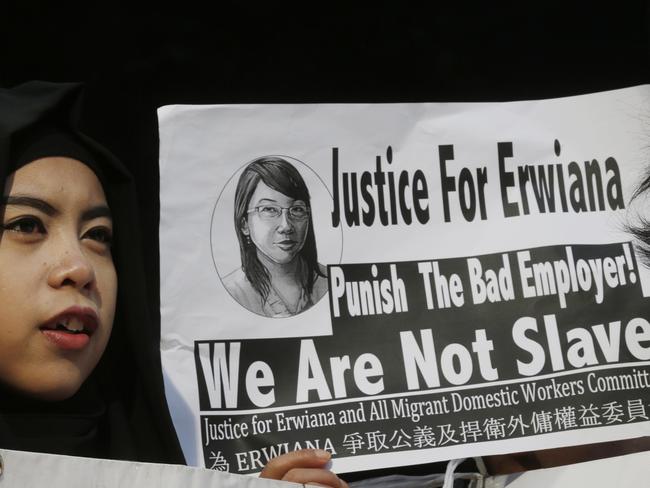
There are more than 300,000 migrant domestic workers in Hong Kong, mainly from Indonesia and the Philippines. They are treated like second-class citizens, living with their employers, often in tiny apartments where they sleep in cramped spaces or even outside.
Working hours are often more than 70 hours per week and pay is far below minimum wage — but still frequently more than the workers could earn in their home countries.
Like Erwiana, most are young and poor. The situation is ripe for abuse and exploitation. A 2013 survey by Amnesty International found widespread physical and sometimes sexual abuse of Indonesian domestic workers in Hong Kong.
Erwiana not only blames the culture in Hong Kong, but also the Indonesian government for not taking better care of its emigrants. “They pass the responsibility of training to the agency,” she said. “They don’t provide good training — their concern is only about profit.”
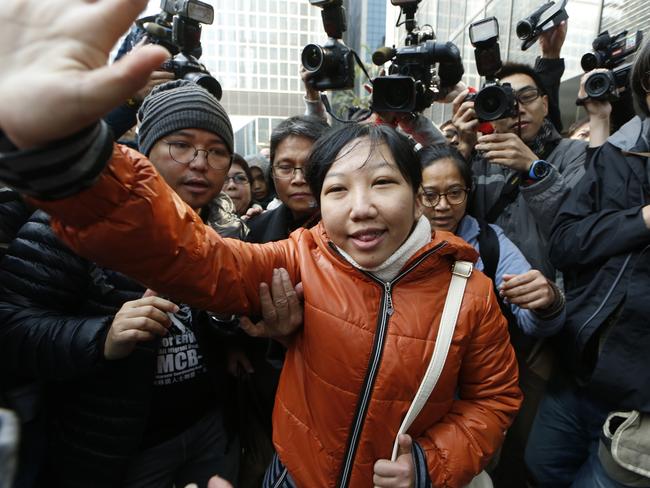
After five weeks with Law, Erwiana escaped to the lobby in their apartment building and called her agency in Hong Kong from the security guard’s phone, asking to change employer. They said it was impossible.
Another time, she was so hungry she ran to a neighbour’s house at 2.30am to beg for food. He told the court he had thought it must be a prank. At the time, Erwiana was surviving on rice and six slices of bread a day.
“Now I know how to move on with my life, I can help my fellow migrant workers and I hope they can be recognised as equal human beings,” she said. “I hope the government will open their minds and have more conscience.
“I was actually worried I might lose the case. The road to justice was very heavy. For someone like me, who knew nothing, to go to court and talk about something I wanted to forget was heavy. But I was determined to fight for justice.
“I can only hope she is sorry. She was smiling in the court, she was charming. It was only a few days before the end of the trial that she stopped looking happy.”



